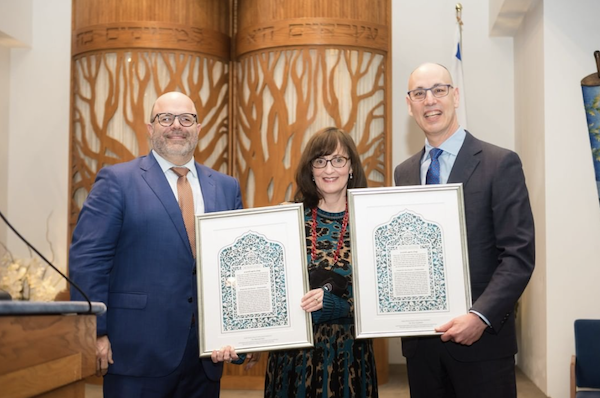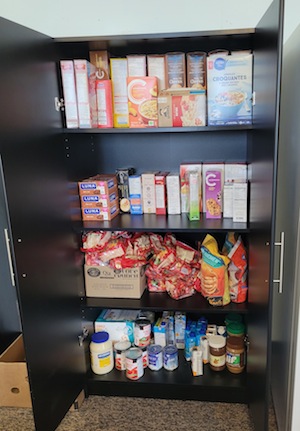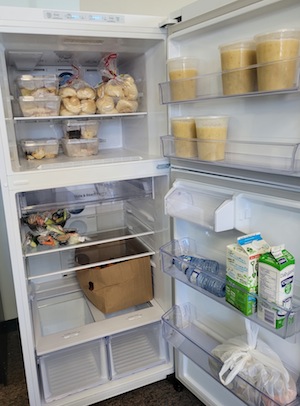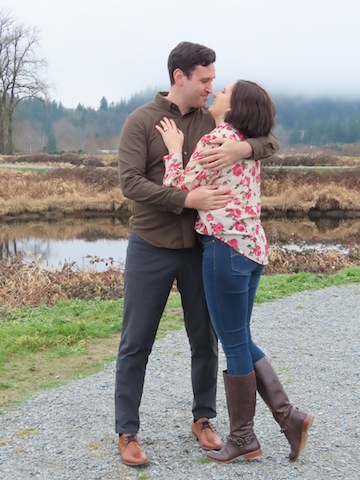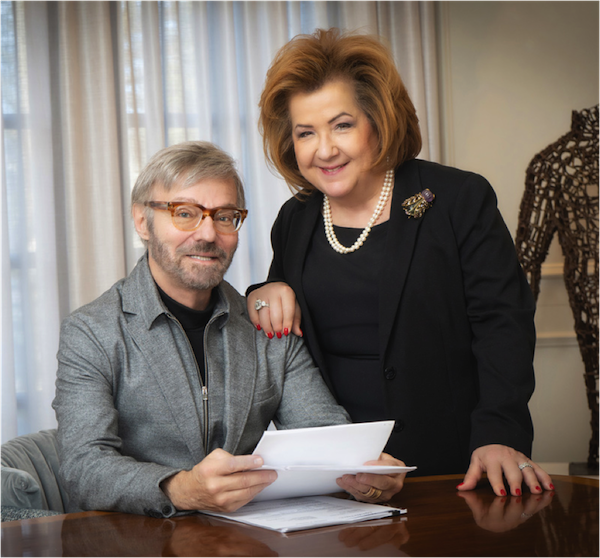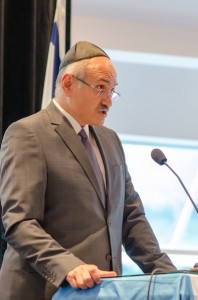People can report misinformation and hateful material at FakeReporter.net.
In a world where misinformation and disinformation are coming at us in unprecedented volumes, an Israeli organization is working literally around-the-clock to flag, correct and eliminate online falsehoods – and they depend on ordinary people to inform them of lies that need addressing.
Achiya Schatz, co-founder and chief executive officer of the group FakeReporter, spoke virtually at a Nov. 2 event organized by Canadian Friends of Hebrew University of Jerusalem and Congregation Beth Israel.
“We try to leverage crowd wisdom in order to make the internet a safer place,” said Schatz.
The challenge goes far beyond reducing misleading information online, he said. The very survival of democratic societies is at stake.
“If we do not have the capacity to distinguish what’s true from what’s false,” he said, “then, by definition, the marketplace of ideas doesn’t work and, by definition, our democracy doesn’t work.”
FakeReporter’s work is painstaking. An on-call team of thousands of volunteers are connected by WhatsApp and other communication tools. When a report of unverified information comes in, it is channeled to an appropriate individual or team to investigate. They will contact government officials, military spokespeople or others who might be able to confirm or debunk the information. They post their findings on social media, disseminate it to conventional media outlets, especially those that may have spread the falsehoods, and report it to the social media or other platforms where it appears.
While the “fog of war” around the conflict between Israel and Gaza is an obvious source of fake news that keeps FakeReporter teams hopping, equally insidious efforts are fomenting internal strife in Israel.
“Arab citizens of Israel have been heavily attacked,” Schatz said of anti-Arab propaganda targeting citizens of Israel online. Posts have aimed to make Jewish Israelis believe that Arab Israelis are a threat. Photos of Arabs allegedly stalking Jewish homes and businesses turned out to be, after investigations by FakeReporter, tradespeople scoping a roofing project and municipal workers going about their business, for example. The messages, from unidentified sources, have the potential to create civil unrest inside the country amid ongoing conflicts with external terrorist groups on multiple fronts.
On the global level, FakeReporter is responding to a barrage of war-related and more routine anti-Israel material online. In response, taking the nomenclature and vision of Israel’s Iron Dome air defence system, Schatz said, his group is creating what strives to be an invincible defence against online incitement.
“We created a Digital Dome,” he said. “It’s an operation that, in one place, anyone can report hate speech, [content] glorifying terror, Hamas supporters and, generally, violence online on Meta, Google, LinkedIn and TikTok.”
The form for people to fill out is at DigitalDome.io, and the organization’s website is FakeReporter.net.
While there is an unlimited number of comparatively minor falsehoods, Schatz said his group is dedicated to confronting some specific and convoluted conspiracy theories that are going viral. Like the fantastical theories that emerged after the 9/11 terror attacks in the United States, the Oct. 7 attacks have spawned what Schatz calls the “traitors among us” conspiracies, in which Israeli security agencies are alleged to have masterminded, or at least participated in, the attacks, as a cover to attack Gaza.
While his organization is busy assessing and confronting the mass of misinformation and disinformation, individuals can do their part by consuming information critically, Schatz said.
To spot fake news, he said, several questions can narrow the field.
“Can I trust the person who wrote and distributed the news?” he said. “Is what I’m reading an opinion or a fact? Does what I’m reading make me feel rage? This question will help you understand that you are seeing something that maybe you should question.” If the “news” you saw in one place is not reported anywhere else, be very suspicious, he said.
The spread of false information is exacerbated by unwitting individuals who share what they find online.
“Before you spread anything forward, you should just breathe for a moment, look at it again with critical thinking and that would do half the job,” he said. “Don’t just spread news through WhatsApp groups and Telegram groups.”
If you find something that glorifies or promotes violence, that is racist, antisemitic or likely untrue, don’t send it to friends, send it DigitalDome.io, he said.
There are other things to consider in determining whether an item might be fake news.
“Many times, information is real but it’s not in the context,” said Schatz. A photo of a bombed building may be real, as opposed to Photoshopped. But what is purported to be in Gaza is often discovered to be from wars in Syria, Ukraine or elsewhere.
The FakeReporter team uses multiple strategies to assess the veracity of photos.
“We can recognize the vehicle,” he said, “we can geo-locate the area, understanding where it is in the world, and we can look for the information online and see, [was it] maybe published before?”
The problem is global and Schatz said governments and social media platforms must work together – or, as in the case of European legislation, governments can impose severe financial penalties on companies that do not speedily react to reports of false or dangerous information on their sites.
The European Union’s Digital Services Act makes it the responsibility of large online information companies to police and remove hate speech, disinformation and cyberbullying, as well as unsafe or illegal retail products, such as sham or life-threatening pharmaceuticals. Other countries could replicate Europe’s legislation, said Schatz.
“What is beautiful about the EU is that they have had a few countries come together and they used their power against big tech [in ways] small countries cannot,” he said. “Israel cannot do anything about it.… Even if we do pass a law, why would Facebook or Twitter care about the law that we passed? They don’t care. That’s a huge problem. What I think Canada and other countries should do is adopt what is happening in the Digital Services Act in Europe and then it’s much easier for the tech companies and for the country, because it’s just replicating what they already can do.”
All the examples Schatz used to this point were addressing the source of misinformation and disinformation. Societies also must sensitize the targets of this content by giving individuals the tools to assess what they see and hear.
“Finland, for example, understood the disinformation coming from Russia is a national threat to them,” he said. “So, they created programs, first for kids and then grown-ups, in digital literacy and information literacy and they are teaching … how to consume information.”
Dina Wachtel, Western region executive director of Canadian Friends of Hebrew University, opened the online event. Rabbi Jonathan Infeld of Congregation Beth Israel introduced Schatz and offered reflections on the topic.
Schatz warned that disinformation is at an inflection point, likely headed for an exponential increase thanks to artificial intelligence, while global responses to the problem are embryonic.
“We’re still learning,” he said. “We’re still adapting. Digital and information literacy is something that is still in its baby steps.”



